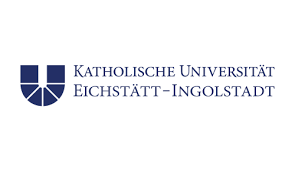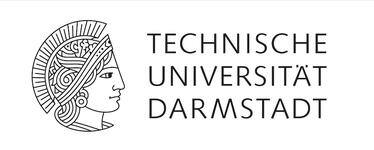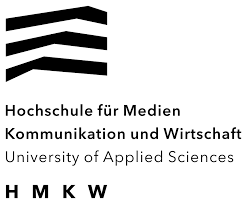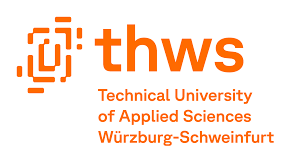Masters in Psychology in Germany: Courses and Admission Guide 2025

Contents
Pursuing a Master's in Psychology in Germany could be a transformative step in your academic and professional journey. With many universities offering programs in English and tuition-free options, we are here to help you find the best psychology courses for you and answer your questions about the application process!
Master's in Psychology Tuition Free Courses for International Students
Many public universities in Germany allow students to study psychology without tuition fees. Here are some affordable options you can explore:
Admission Requirements for an MSc in Psychology Germany
For international students applying for a Master's in psychology in Germany, several key requirements must be met. These requirements can vary by institution but generally include the following:
University Degree Requirements
- Applicants must possess a relevant Bachelor's degree, typically in Psychology, Neuroscience, or a related discipline.
- To obtain a master's degree in Psychology that can eventually lead to a license and practice of Psychology in Germany, you will have to prove that your previous study experience matches the requirements of the master's program you want to get admission into.
- Students with a bachelor's degree from abroad must ensure their degree aligns with the requirements of the German master's programs or licensing regulations. This alignment is critical due to the recent reforms in psychology degree programs. Decisions on recognition of foreign degrees are made on a case-by-case basis and can vary depending on the university and state examination office.
State Exam
- In order to practice psychology in Germany, students have to appear for the State Exam and gain a license for psychology.
- Once you complete your master's degree, you can appear for the State Exam to gain your license.
Language Requirements
- For programs taught in English, applicants must demonstrate proficiency through standardized tests such as the TOEFL (typically requiring a score of 90-100) or the IELTS (with a minimum score of 6.5 or 7.0).
- Some universities might also accept Cambridge English certificates or equivalent tests.
Work Experience Requirements
- While not always mandatory, some programs prefer or require applicants to have relevant work experience in psychology or related fields.
- Practical experiences, such as internships, research projects, or clinical work, can strengthen an application and provide valuable insights into the field.
- Universities may look for evidence of specific skills, such as research competencies, data analysis, or familiarity with psychological assessment tools.
Remember
Every university may have slightly different requirements based on specific courses and needs. Always check the university course pages for the most up-to-date information.
Application Deadlines for Master's in Psychology
Understanding the application deadlines for a Master's program in Psychology in Germany is crucial for a successful application process. These deadlines can vary based on the university and the semester in which you intend to begin your studies. Below is an overview of typical application timelines and key considerations:
General Application Deadlines
Winter Semester:
- Primary Intake: The winter semester is the main entry point for most master's programs in Germany.
- Application Deadlines: Applications are typically accepted from mid-December to late March. However, some universities may have earlier deadlines, so it's important to verify the specific dates for each institution.
Summer Semester:
- Secondary Intake: Fewer programs offer a summer semester intake, but it can be an option for some students.
- Application Deadlines: Generally, the deadlines fall between mid-May and late September. It's essential to confirm if your chosen program is available for the summer intake.
Additional Considerations for Master's in Psychology
- New Reforms: Recent reforms in Germany's psychology education, such as the Psychotherapists’ Act, have impacted admissions, making it crucial to ensure your undergraduate degree aligns with new requirements.
- Admission Tests: Germany has introduced an aptitude test for psychology, which can enhance your application if you're applying for a bachelor's degree that will lead to a master's pathway.
- Competitive Admission: Psychology programs are highly competitive, with limited slots, so ensure your application stands out by highlighting relevant experience and strong academic records.
- Language Requirements: Verify the language of instruction for your program, and ensure you meet the necessary language proficiency standards, whether in German or English.
If you want to learn more about the best universities in Germany for Psychology, we have just the guide for you!
English-Taught Psychology Programs in Germany
Alternative Degree Options for Psychology Students
If you're looking to expand your career options beyond traditional psychology roles, consider exploring related programs that build on your skills and offer flexibility for a variety of career paths. Here are some alternatives:
Business Psychology Degrees
Human Resources Degrees
Cognitive Science Degrees
No study programs in top universities found for this subject
FAQs
Is Germany good for a master's in psychology?
Yes, Germany is an excellent choice for a master's in psychology due to its high-quality education, renowned universities, and innovative programs. German universities offer diverse specializations and substantial research opportunities, making it a top destination for psychology studies. Additionally, many programs are available in English, catering to international students.
It is important to highlight that psychology students may have to take a state exam at the end of their master's program to get licensed and practice psychology in Germany.
Can I study psychology in Germany in English?
Your options for pursuing a master's in psychology in Germany can vary based on your chosen specialization. Programs in fields like Business Psychology, Human Resource Psychology, and Environmental Psychology are more commonly offered in English. However, for degrees such as Clinical Psychology, courses are predominantly available in German, with fewer English-taught options.
How much does a master's in psychology cost in Germany?
Most public universities in Germany do not charge tuition fees for master's programs, including psychology. However, some universities may charge a small semester fee, ranging from €100 to €350, to cover administrative costs and provide benefits like public transportation. Private universities do charge tuition fees, which can range from €5,000 to €20,000 per year.
This might also be of interest to you

Study Cognitive Science in Germany
Are you fascinated by how the human mind works and how we can build intelligent systems that mimic human thinking? If you're passionate about areas...

Study Aviation Management in Germany: Top 6 Universities & 11 Programs
Dreaming of a career in the aviation industry? Whether you're passionate about air traffic, airline operations, airport management, or aviation...

Study Applied Data Science in Germany: 95 Study Programs in English
Are you fascinated by data and its power to shape the future? Do you dream of making data-driven decisions in fields like healthcare, neuroscience,...

Study American Studies in Germany: 62 Programs & Top 36 Universities
Are you fascinated by the United States, its literature, culture, politics, and global impact? If you dream of exploring North American society...

Study Applied Computer Science in Germany: 46 Study Programs in English
Are you passionate about technology, artificial intelligence, or software development? Dreaming of becoming a skilled software engineer or data...

Study Biomedical Engineering in Germany: Top 13 Universities & 18 Study Program
Are you fascinated by science, passionate about helping people, and curious about how technology can improve healthcare? If so, biomedical...

Best Student Cities in Germany for 2025
Germany is one of the top study destinations for international students, known for its high-quality education, vibrant culture, and affordable living...

How Expensive is Munich for Students? (Budget Guide 2025)
Munich is one of the most expensive cities in Germany, mainly because of high rent and living costs. However, with good financial planning, students...








